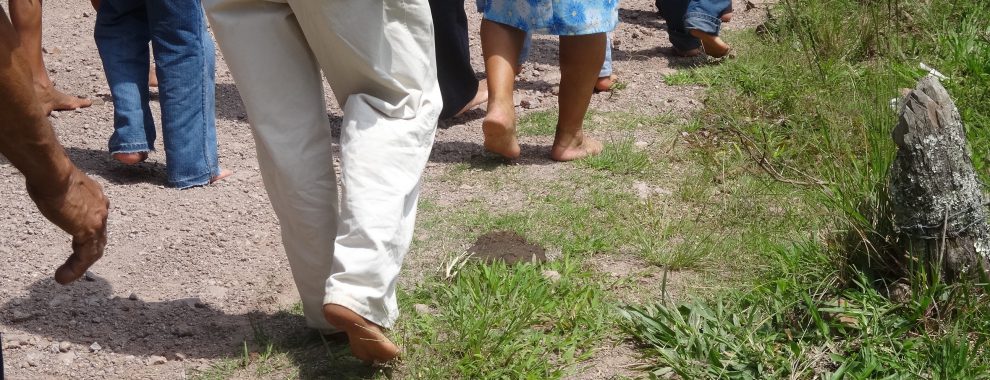Who am I that the mother of my Lord comes to me?
Luke 1: 43
These words of Elizabeth express wonder at the mystery of the Word made flesh in Mary who has come to visit her.
Today the Church in the Americas  celebrates the feast of the Virgin of Guadalupe, Mary who came – as La Morenita, the dark skinned-maiden – to Juan Diego. She identified herself as “the Mother of the true God through whom one lives.”
celebrates the feast of the Virgin of Guadalupe, Mary who came – as La Morenita, the dark skinned-maiden – to Juan Diego. She identified herself as “the Mother of the true God through whom one lives.”
What was Juan Diego’s reaction?
My dear Lady, this I beg you, entrust your mission to one of the important persons who is well known, respected, and esteemed so that they may believe him. You know that I am a nobody, a nothing, a coward, a pile of old sticks.
How many of the poor and the indigenous of this world have been so put down that they fell this way? “I am a nobody.”
But it was to “a nobody” that Mary entrusted her mission. Mary came not as a Spaniard, but as a young indigenous woman, speaking in Nahuatl – not in Spanish.
She appeared first on December 9 on the Hill of Tepeyac and told Juan Diego to go to the bishop, requesting a church on the site of her appearance. The bishop was skeptical. But Juan Diego returned the next day, after the Virgin had sent him again. The bishop now asked for some sign that this was true.
Juan Diego stayed at home the next day to care for his sick uncle. The next day he went looking for a priest to visit his uncle and tried to avoid the Virgin.
But an early account notes that “she came out to meet him.”
The rest is history – Juan Diego picks roses in December and presents them to the bishop, only to discover that there was an image of La Morenita on his tilma, his cloak.
But what strikes me is the remark of an early account of the event by Antonio Valeriano:
“she came out to meet him.”
Mary, as evangelist, comes out to the poor, the indigenous, who consider themselves as nothing. She reveals to them their gift, their power to evangelize – a capacity I see continually here in Honduras. The poor are evangelizers of each other, of their neighbors, and of us foreigners.
In the canticle of Hannah (1 Samuel 2: 1-10) which is the inspiration for Mary’ canticle (Luke 1: 46-55), Hannah triumphantly sings:
The Lord lifts up the lowly from the dust
And raises the poor from the ash heap.
The Virgin of Guadalupe is again an indication of God taking the side of the poor, lifting them up, and giving them the mission to evangelize the world, especially those of us who are held bound by our money and power.
May our hearts be open to the poor, who bring us the Good News of a God who comes to save and liberate all of us.



 He has cast down the mighty
He has cast down the mighty


 celebrates the feast of the Virgin of Guadalupe, Mary who came – as La Morenita, the dark skinned-maiden – to Juan Diego. She identified herself as “the Mother of the true God through whom one lives.”
celebrates the feast of the Virgin of Guadalupe, Mary who came – as La Morenita, the dark skinned-maiden – to Juan Diego. She identified herself as “the Mother of the true God through whom one lives.”


